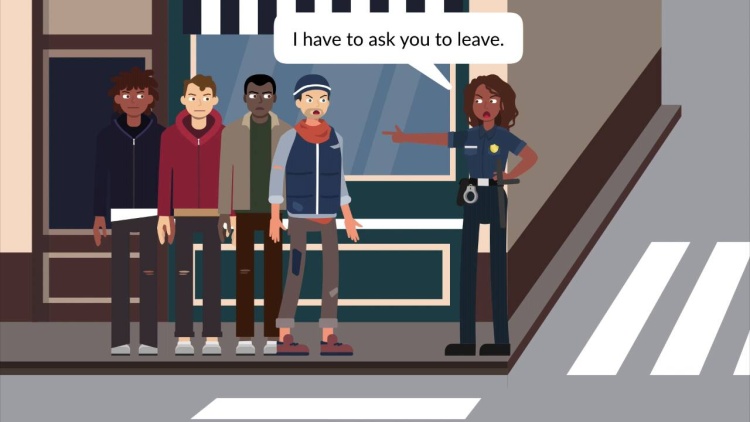City of Chicago v. Morales
United States Supreme Court
527 U.S. 41, 119 S.Ct. 1849, 144 L.Ed.2d 67 (1999)
- Written by Craig Conway, LLM
Facts
The City of Chicago (plaintiff) enacted an ordinance criminalizing loitering in a public place with one or more other people. The ordinance defined loitering as “remain[ing] in any one place with no apparent purpose.” Under the ordinance, if a police officer observed someone the officer reasonably believed to be in a criminal street gang loitering in a public place with one or more other people, the officer could order the people to disperse. Anyone who did not follow the dispersal order would be in violation of the ordinance. Morales (defendant) was convicted under the ordinance. However, the state appellate court reversed his conviction. The Illinois Supreme Court of Illinois affirmed the appellate court’s judgment, holding that the ordinance violated the Due Process Clause of the Fourteenth Amendment because it was impermissibly vague. The United States Supreme Court granted certiorari.
Rule of Law
Issue
Holding and Reasoning (Stevens, J.)
Concurrence (O'Connor, J.)
Concurrence (Kennedy, J.)
Dissent (Scalia, J.)
Dissent (Thomas, J.)
What to do next…
Here's why 904,000 law students have relied on our case briefs:
- Written by law professors and practitioners, not other law students. 47,100 briefs, keyed to 995 casebooks. Top-notch customer support.
- The right amount of information, includes the facts, issues, rule of law, holding and reasoning, and any concurrences and dissents.
- Access in your classes, works on your mobile and tablet. Massive library of related video lessons and high quality multiple-choice questions.
- Easy to use, uniform format for every case brief. Written in plain English, not in legalese. Our briefs summarize and simplify; they don’t just repeat the court’s language.





